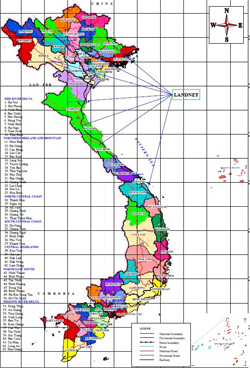Sustainable Income Models
Promoting participation and responsibilities of local people in Forest/Land Management
.jpg)
Forest/Land Allocation and more important the sustainable forest/land use and management has been concerns of many local governments nation wide. However, this issue has not been addressed in an effective way in all places. The results and lessons learnt from the pilot project on ” Strengthening capacity of different local stakeholders in land management in Bac Lang commune, Dinh lap district, Lang Son province” has been inspired by local people and local authorities!
After one year implementation from the above pilot project, 261/264 households and 9 communities are given land use certificates (red books) with the total area of 3,120 ha and another 2,125 ha of forestry land has been allocated for households and communities for protection and conservation, meaning that all kind of forest/land in Bac Lang commune have been allocated to local people for management. To have this achievement, according to Mr. Ly Van Tuan, (Dzao ethnic people), Chairman of Bac Lang People’s Committee, that local authorities has actively involved in the programme implementation process, especially the programme makes use customary law and traditional values in solving different conflicts over forest/land at different levels. Mr. Tuan said “ We consider this Land Rights Pilot Programme as a “Revolutionary” and our farmers are now confident to invest on their allocated forest/land in a sustainable way for long term!
A comprehensive approach has been used for this programme, including local research on forest/land use and management, local culture and customary law in Bac Lang; combination customary law with land law/policies; organizing study tour for lessons learnt and sharing experiences, etc. After land rights, it is setting up perma-culture pilot models, customary law based community forest management and conservation!!
Community based, participatory and people-centre approach has been implemented during programme. With this approach, local people have involved in discussing and decision making in mapping, and land allocation process. Local people fulfilled their own profile themselves with support from local experts. Over 100 workshops done at different levels (village level, commune level and district level) with full participation of local people and leaders.
The full participation of local people and supportive involvement of different stakeholders and relevant players played an important role to gain target outcomes. Activities after land allocation programme are implementing by local people based on indigenous knowledge and adapted technologies for local context.
CIRUM
.jpg)






















